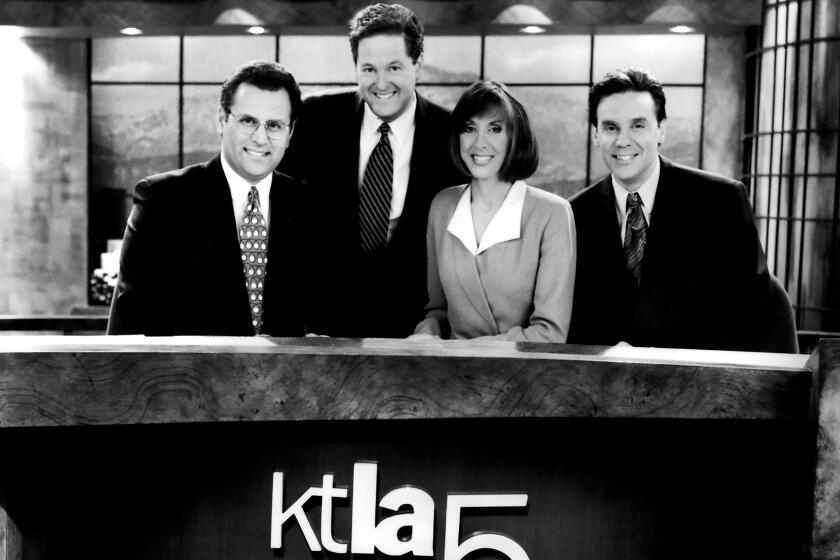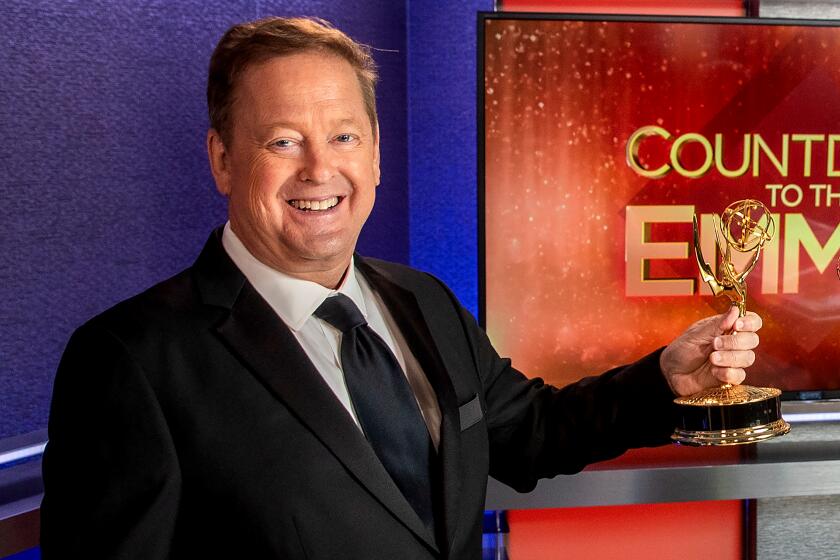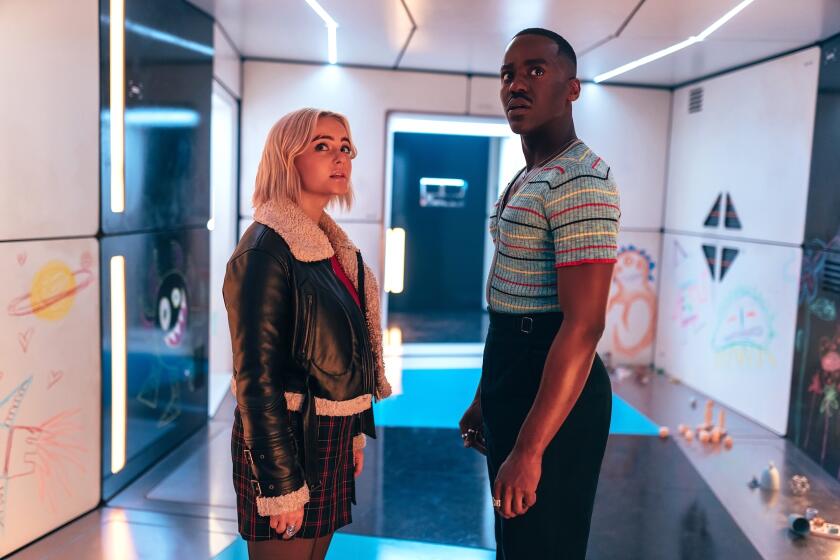A glimpse of what just might survive
Already in its 13th installment, “Survivor” has been largely wrung dry of the sorts of tensions particular to castaway life. This season’s twist, designed to at least raise eyebrows, if not stop hearts -- and, presumably, juice the ratings -- split the show’s tribes along ethnic lines: African Americans, Latinos, Asians and, as one cast mate enthusiastically, if not maliciously, shouted, out of earshot of the rest, “the whiteys!”
It lent a eugenic tone to host Jeff Probst’s introductory boilerplate in Thursday’s much-anticipated season premiere: “Twenty strangers forced to work together to create a new society while battling the elements and each other.”
For the most part, though, cast diversity didn’t add much to the range of problems a group of people stuck on an island in hopes of winning a cash prize can encounter. There were the usual boring distractions. There was hunger. There was sloth. There were take-charge types with no skill to back up their bossy attitudes. That this new arrangement is a Hail Mary from Mark Burnett, the show’s creator, appears certain -- but it also might be his last untapped idea.
Perhaps the show’s gambit, as it were, is to highlight intra-ethnic strife over inter-ethnic conflict, as if the quibbles within groups would be enough to dispel perceptions of racial unanimity. If so, Burnett’s players seemed content to play along. “As people that have the same ethnicity, maybe we’ll clash on things,” said Ozzy, a 25-year-old waiter from the Latino tribe. “When it comes to surviving,” noted Sundra, an African American actress, “it’s a human effort.”
However, at least thus far, there was precious little discussion of actual race or racism on the show. Intellectual curiosity isn’t a requirement to participate in “Survivor” -- when they did get around to discussing the subject, the players were, for the most part, remarkably blithe and uninterested.
And the occasional moments of clarity were played for laughs -- when rafting to the island, Billy, a Dominican American heavy metal musician from New York, remarked: “I dunno about you, but I feel like this is ... backwards. Like, our parents got on a raft, at least my parents did, and paddled their way away from an island just so I could have a good life, and here I am paddling back to an island.”
And later, while holding a rusted machete, one of the members of the African American tribe noted, cynically, “This couldn’t cut cotton.”
Last week, Probst made some spectacularly uninformed comments to the press about his own lack of diversity awareness. (“When you start talking to a person from Asia, you realize, ‘Wow, they have all different backgrounds!’ ” he said in a conference call with reporters.) “Survivor” seems to be counting on an audience that’s just that green, and that differences within ethnic groups will make for novel and watchable television more so than the quibbles produced by randomization.
That is, if the tribes ever choose to look outward. So far, there are a couple of hints that, for all of the show’s lack of frank dialogue about race, certain predispositions may in fact be at play. At the end of the premiere episode, the losing African American team, when presented an opportunity to send one player into exile, forewent choosing someone from the winning Asian team and instead banished one of the white players, who had barely squeaked past them in the immunity challenge.
Perhaps they were sporting a different sort of target, though, one that had nothing to do with the challenge. Earlier in the episode, while speculating about his crew’s chances, a member of the Asian team had anticipated such a turn: “We fly under the radar. Nobody suspects these little people with slanted eyes to see anything or to be strong enough to do anything.”
That’s the thing about stereotypes -- they’re persistent, plenty, and everybody’s got them.
The complete guide to home viewing
Get Screen Gab for everything about the TV shows and streaming movies everyone’s talking about.
You may occasionally receive promotional content from the Los Angeles Times.



